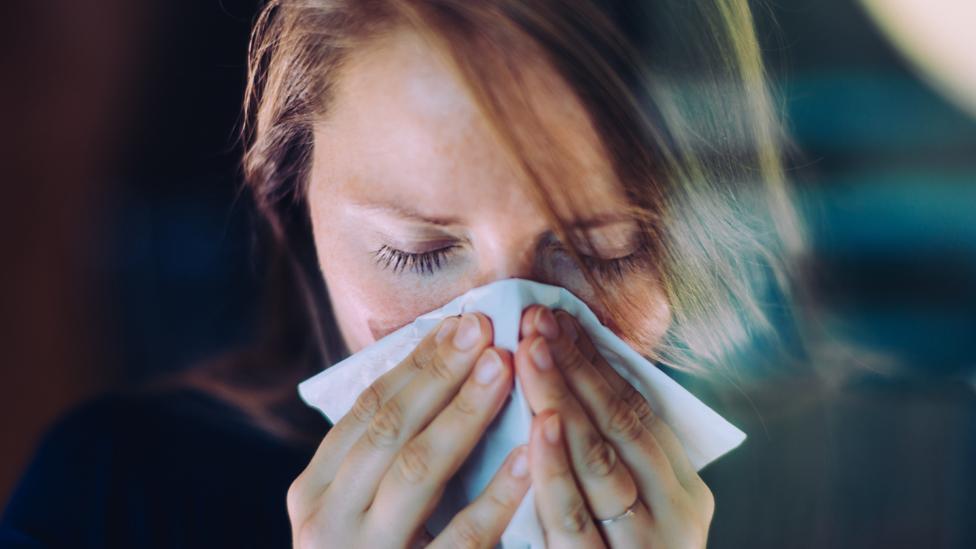Cost of living: Woman's money worries leave her cupboards empty
- Published
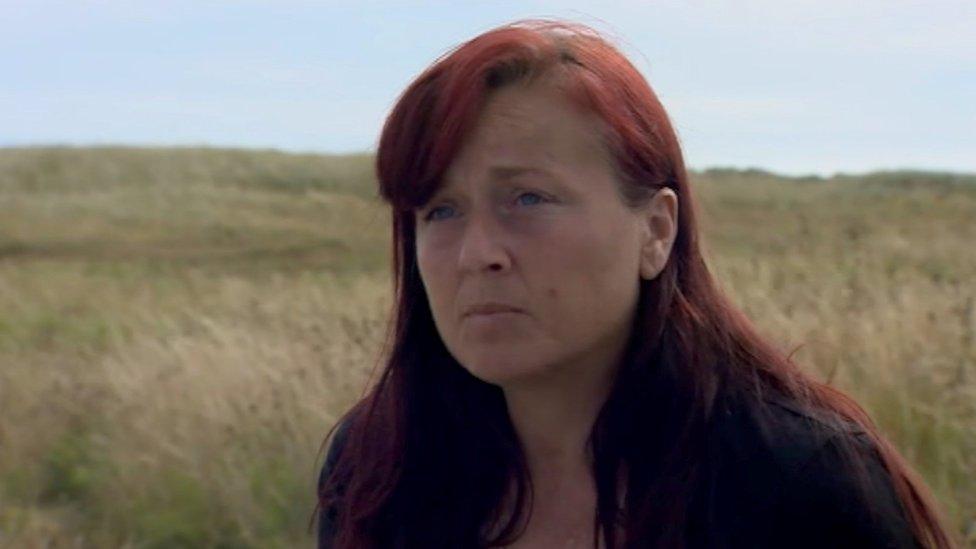
Mary Hall has considered having her gas supply cut off to save money
A woman on Universal Credit says it is "quite standard" for her to go without eating for five days as she battles against rising food and utility bills.
Mary Hall, 47, from Northumberland, says she is scared and has considered ending her gas supply to save money.
Charity Changing Lives says some parents are even considering putting their children into care, because they can not afford to look after them.
It says urgent action is needed from the government.
The Tyneside-based organisation, which supports people across the country facing issues such as homelessness, addiction and long-term unemployment, said it was "terrified" by the energy price cap rising in October.
Ms Hall, from Lynemouth, has worked for 25 years. She set up her own dog-training business but struggled during the pandemic and is now living on Universal Credit but says the payment is not enough to cover her rent, food and energy bills.
"Worked hard all my life"
"I'm really scared, I don't really know where things can improve. I've got to then sit there without not knowing if I've got a roof over my head in two weeks' time because I can't afford to pay the bills," she said.
"I've got no food in the cupboards and have gone five days without food. That's quite standard, that's not a one-off.
"I have already considered completely getting the gas cut off and not having that standard daily charge every day to pay."
Ms Hall, who has multiple physical and mental health issues, said she has made claims for various benefits but fears for the future if they get rejected.
"It is a long time to sit and wait. There is this energy bill rise coming and there is nothing I can do - and that is not through lack of hard work, I have worked hard all my life."
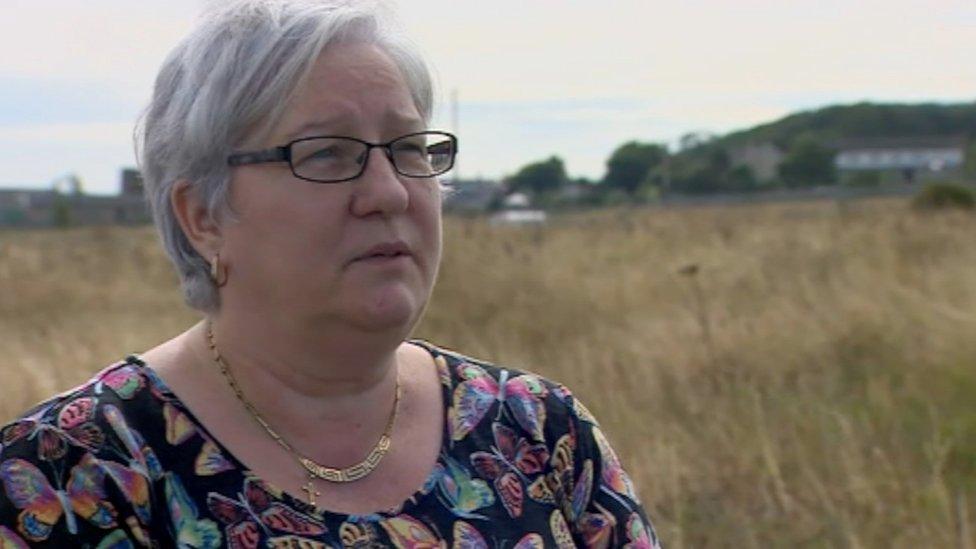
Lynn Crawford from Changing Lives is "terrified" people will die unless the government does more
Lynn Crawford, from Changing Lives, is worried some people she helps could die unless there is a "massive intervention" from the government to freeze energy bills and boost benefit payments.
"I do think we are going to lose lives this winter - and I'm not scaremongering. I really truly believe that," she warned.
"Some parents have said that they are considering like contacting social services about how they are going to manage - [asking] could the social services look after their children?
"That's a horrible decision for a parent and it's not like that's an easy option or anything, but parents are talking about handing their children over to social services and they will end their own life.
"They are the conversations that I have on a daily basis and it's really hard."
The charity's 'Priced Out' report, external says 80% of its services have seen an increase in the number of people no longer able to make ends meet - with food poverty now "commonplace" and growing numbers at risk of eviction.
It told the Local Democracy Reporting Service the under-25s are at greatest risk, with two thirds of the charity's services are seeing more people at increased risk of abuse and exploitation, and that helping people transition out of homeless hostels has become ever more difficult because of the crippling cost of privately rented accommodation.
A government spokesperson said: "We recognise people are struggling with rising prices which is why we are protecting millions of the most vulnerable families with at least £1,200 of direct payments, starting with the £326 cost-of-living payment, which has already been issued to more than seven million low-income households.
"Through our £37bn support package we are saving the typical employee over £330 a year through a tax cut, allowing people on Universal Credit to keep £1,000 more of what they earn, while all households will receive £400 energy payments.
"Vulnerable families in England are also being supported by the government's Household Support Fund - which was boosted by £500m - to help pay for essentials."

Follow BBC North East & Cumbria on Twitter, external, Facebook, external and Instagram, external. Send your story ideas to northeastandcumbria@bbc.co.uk, external.
Related topics
- Published15 February 2024
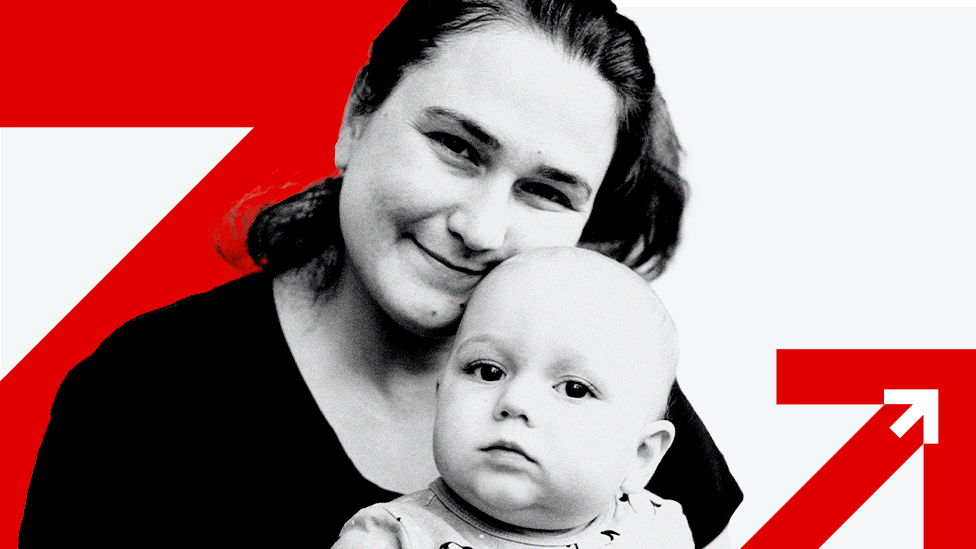
- Published3 April 2024
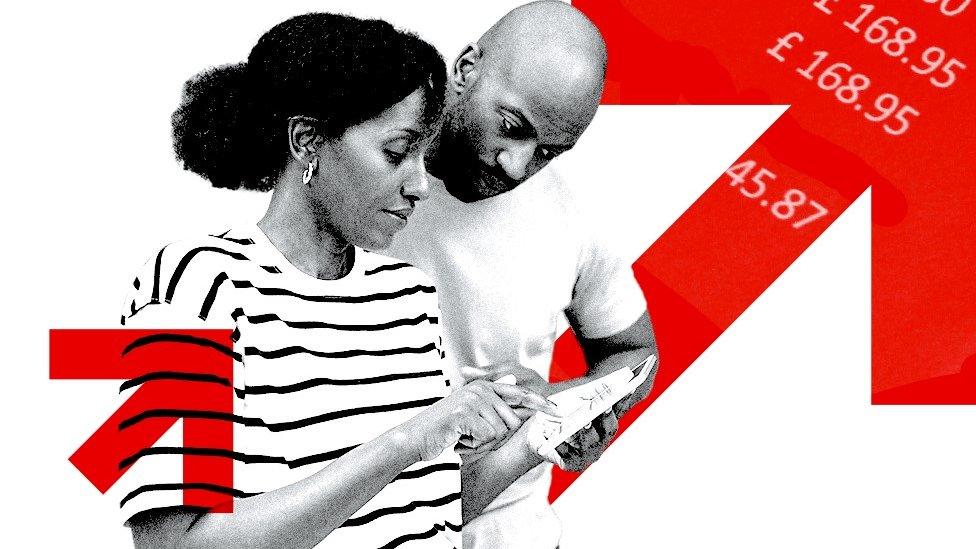
- Published22 August 2022
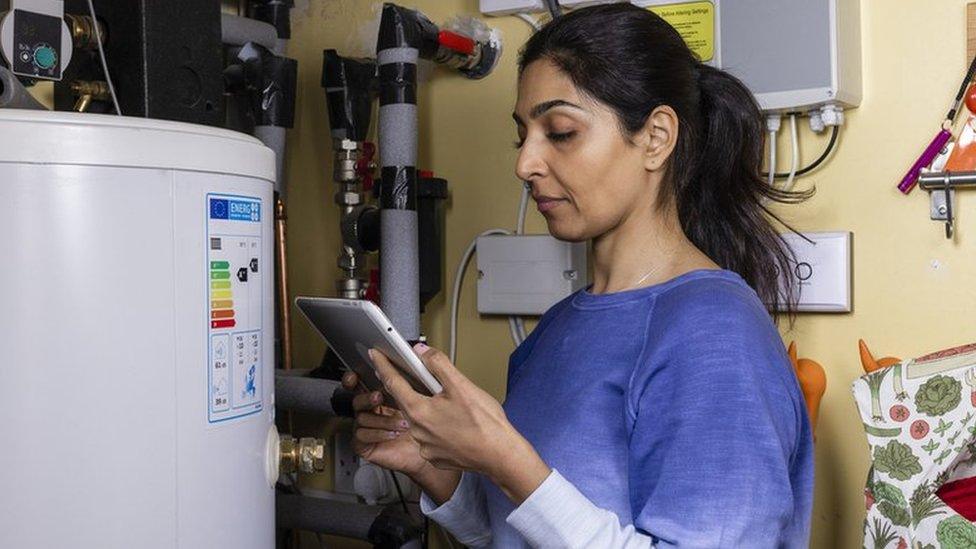
- Published19 August 2022
